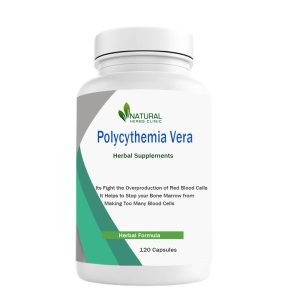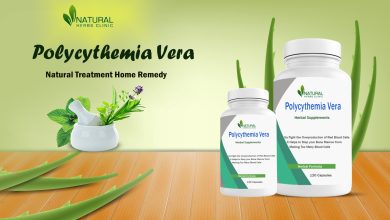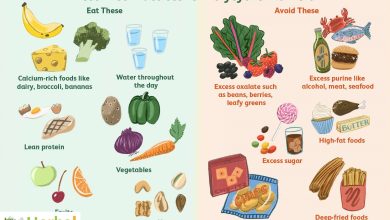Understanding Polycythemia Vera End Stage Symptoms

Polycythemia Vera End Stage Symptoms is a rare, chronic blood disorder characterized by the overproduction of red blood cells in the bone marrow. While this condition can be managed with appropriate treatment, it can progress to an advanced stage known as end stage PV. In this article, we will explore the symptoms associated with Polycythemia Vera End Stage Symptoms and provide valuable insights for patients, caregivers, and Natural healthcare professionals.
Overview of Polycythemia Vera
Before delving into Polycythemia Vera End Stage Symptoms, let’s briefly discuss the basics of polycythemia vera. PV is caused by a genetic mutation that leads to an abnormal increase in red blood cell production. The excess red blood cells can thicken the blood and hinder its flow, potentially causing serious health complications.
Related Article; Exploring Polycythemia Vera Alternative Treatments: Natural Approaches to Managing Symptoms
Importance of Identifying End Stage Symptoms
Identifying end stage symptoms of any medical condition is of utmost importance, and this holds true for Polycythemia Vera End Stage Symptoms as well. PV is a chronic blood disorder characterized by the overproduction of red blood cells. While it can be managed with treatment, it can progress to an advanced stage known as Polycythemia Vera End Stage Symptoms.
Recognizing Polycythemia Vera End Stage
As PV progresses, it can reach an advanced stage commonly referred to as end stage PV. At this point, the disease presents a unique set of symptoms that require careful attention. These symptoms may vary from person to person, but some common indicators include:
Related Article; Polycythemia Vera Treatment Diet Revealed: Unlock the Power of Food
Extreme Fatigue and Weakness
End stage PV often manifests as severe fatigue and weakness. Patients may experience a profound lack of energy, making even routine activities challenging.
Breathlessness and Chest Pain
The excessive red blood cells in PV can impair oxygen delivery to various organs, leading to breathlessness and chest pain. These symptoms can be particularly pronounced in the end stage of the disease.
Related Article; Polycythemia Vera Management Often Does Not Follow Guidelines
Enlarged Spleen
An enlarged spleen, also known as splenomegaly, is a common characteristic of PV, especially in its advanced stages. This enlargement can cause discomfort or pain in the abdomen.
Bleeding and Bruising
End stage PV may result in an increased risk of bleeding and bruising due to abnormal blood clotting. This can manifest as frequent nosebleeds, bleeding gums, and easy bruising.
Related Article; Painful Burning or Numbness of the Hands and Feet: How to Relief
Visual Disturbances
Some individuals with end stage PV may experience visual disturbances, such as blurred vision or seeing floaters. These symptoms require prompt medical attention.
Managing Polycythemia Vera End Stage
While there is no cure for PV, there are treatment options available to manage symptoms and improve quality of life, even in the Polycythemia Vera End Stage Symptoms. The primary aim of treatment is to reduce the number of red blood cells and control complications. Common treatment approaches include:
Related Article; Navigating the Use of Hydroxyurea for Polycythemia Vera Recovery
Phlebotomy
Phlebotomy, also known as bloodletting, involves the removal of excess blood from the body. This helps in reducing the viscosity of the blood and improves blood flow.
Medications
Medications such as hydroxyurea or interferon-alpha may be prescribed to regulate blood cell production and alleviate symptoms associated with PV.
Related Article; Polycythemia Vera Diet and Lifestyle Tips: Managing Your Health
Radiation Therapy
In certain cases, radiation therapy may be recommended to reduce the size of an enlarged spleen or alleviate pain caused by bone marrow.
Supportive Care and Lifestyle Changes
To manage the symptoms of PV end stage effectively, patients can adopt certain lifestyle changes, including:
1. Regular Exercise
Engaging in low-impact exercises, as advised by healthcare professionals, can improve cardiovascular health and reduce fatigue.
2. Adequate Hydration
Staying well-hydrated helps in maintaining optimal blood flow and preventing complications associated with PV.
3. Diet Modifications
A balanced diet rich in fruits, vegetables, and whole grains can provide essential nutrients and support overall well-being.
Related Article; How Can I Reverse Polycythemia Vera Naturally and Effectively
Natural Treatment Options for Polycythemia Vera End Stage Symptoms
Polycythemia Vera End Stage Symptoms can significantly impact the quality of life for individuals affected by the condition. While medical interventions are crucial in managing PV, some individuals may seek natural treatment options to complement their conventional treatments even in the end stage. It’s important to note that Polycythemia Vera Natural Treatment should be used in conjunction with medical guidance and not as a replacement.
Natural Treatment Options and Management of Polycythemia Vera
Polycythemia Vera (PV) is a chronic blood disorder characterized by the overproduction of red blood cells in the bone marrow. While medical interventions play a crucial role in managing the condition, some individuals may also seek Natural Treatments for Polycythemia Vera options to complement their conventional treatments.
Related Article; Say Goodbye to Polycythemia Vera with Best Home Remedies
Conclusion
In conclusion, while a Natural Cure for Polycythemia Vera options can be incorporated alongside conventional medical interventions, it is essential to consult with healthcare professionals before making any changes. Lifestyle modifications, herbal remedies, stress reduction techniques, and regular medical check-ups can contribute to the overall management of Polycythemia Vera End Stage Symptoms improve the quality of life for individuals living with the condition. Polycythemia Vera End Stage Symptoms can significantly impact the quality of life of affected individuals. Recognizing and understanding these symptoms is crucial for timely intervention and appropriate management





